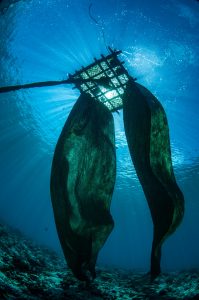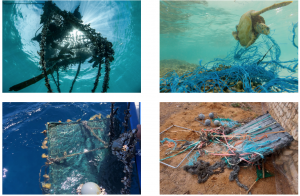|
Among the 120 signatories are retailers and brands that source tuna from the Indian Ocean. These include Marks & Spencer, MIGROS, Woolworths, Fish Tales, Fish4Ever, followfood, Big Fish, and Greenfish amongst others. Global conservation organisations such as Seas at Risk, Whale and Dolphin Conservation, Blue Marine Foundation, BirdLife International, Deutsche Stifftung Meereschutz, Sciaena, and Environmental Investigation Agency (EIA) also endorsed the call to action. Small-scale fishers also added their voice with groups like Fédération des Pêcheurs Artisans de l’Océan Indien (FPAOI) and the Confédération Africaine des Organisations de Pêche Artisanale (CAOPA), requesting action from the EU on FADs
The signatories of the letter emphasised that the EU has a moral and legal obligation to act in the best interests of its 450 million citizens and not only to protect the interests of commercial enterprises in Spain, France and Italy who profit from their fishing operations in the Indian Ocean. The letter also highlighted the EU’s obligation to apply the precautionary approach – a key environmental principle that mandates action to prevent possible environmental damage – at the upcoming Special Session of the Indian Ocean Tuna Commission (IOTC) that will be held in Mombasa, Kenya, on 3-5 February 2023.
The IOTC Special Session is being held in the wake of rampant overfishing of the region’s tuna stocks. The valuable Indian Ocean yellowfin tuna stock is overfished and has been since 2015. Recently, the region’s bigeye tuna stock has also been assessed as overfished and subject to overfishing. Scientists have consistently shown strong links between dwindling tropical tuna stocks and the high numbers of juvenile tuna caught around drifting FADs. A recent study showed that 97% of the yellowfin tuna caught around drifting FADs in the Indian Ocean are juveniles.
According to 2020 statistics, the EU fleet caught 217,000 tonnes of tuna in the western Indian Ocean. Of this catch, 69% was taken by Spain, 28% by France, 2% by Italy and 1% by Portugal. The catch consisted mainly of skipjack, yellowfin and bigeye tuna, with more than 60% of the yellowfin tuna in the Indian Ocean caught by EU vessels.
|

The EU’s delegation to the IOTC previously pushed back in 2021 and 2022 at attempts to improve existing FAD management measures, arguing that that there is a lack of scientific data on which to base such management decisions. The letter argues, however, that the precautionary approach is not only incorporated as a resolution at the IOTC but is also specifically mentioned under Article 6 of the UN Fish Stocks Agreement (UNFSA) and the EU’s own fishery law adopted under the Common Fisheries Policy.
Tuna fisheries are among the most highly capitalised and valuable fisheries in the world. Tunas are not only a sought-after commodity, but also an important source of protein. They also play a vital role as predators and prey in tropical and temperate marine ecosystems while supporting the livelihoods of many artisanal fishers.
In the Indian Ocean the millions of juvenile yellowfin and bigeye tuna caught around FADs could have grown to much larger fish to feed coastal communities. There is also lots of evidence that FADs are causing serious environmental damage in coastal areas where communities are the most vulnerable in terms of poverty, climate change and impacts on their food security.
The signatories expressed the hope that their call to action will be acknowledged and the EU will show leadership as an important actor on global marine conservation.
|

© IPNLF/Byron Dilkes
The signatories of the letter call on the EU delegation at the IOTC Special Session to urgently support the adoption of management measures to ensure that drifting-FADs are managed more effectively to:
FADs are deployed by European and other purse seiners to attract tuna before they deploy their massive nets around these man-made devices. The use of dFADs also has a wide range of negative impacts on key ocean habitats and threatens other species such as sharks which fall victim to the bycatch drifting FAD fishing causes or are mortally entangled in the netting attached. There is currently insufficient transparency in the use of drifting FADs which creates a lack of accountability for vessels deploying and utilising these fishing gears. This increases the risk of non-compliance with regulations, thereby potentially amplifying the negative impacts of dFADs and undermining conservation efforts.
The letter further states that the legality of FAD operations is also questionable, and in some instances, it is highly likely that FAD operations constitute Illegal, unreported and unregulated (IUU) fishing. Thousands of FADs are lost or abandoned in the Indian Ocean every year and in most instances such loss or abandonment quite likely contravene international marine pollution law.
Small-scale fisheries that catch tuna responsibly using one-by-one fishing techniques for example in the Maldives have minimal ecosystem impacts while providing maximum employment opportunities per tonne of harvest. Large industrial fisheries’ in which the most common modern technique is ‘purse seine’ net fishing supported by drifting FADs that tuna congregate around, making the schools easier to locate and catch in their entirety.